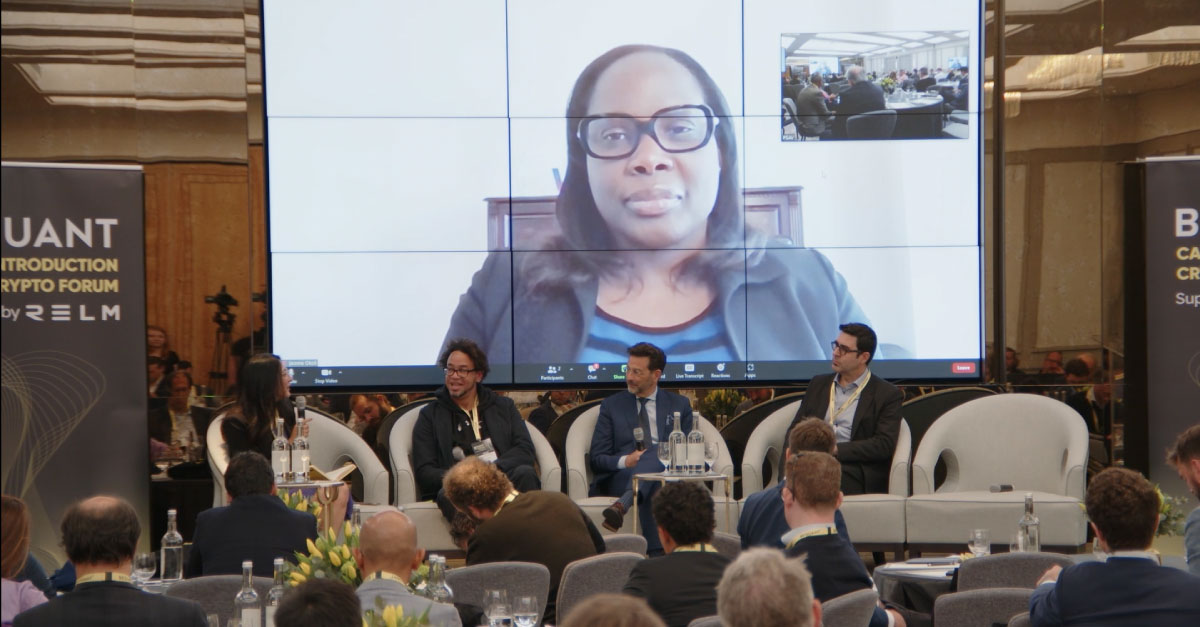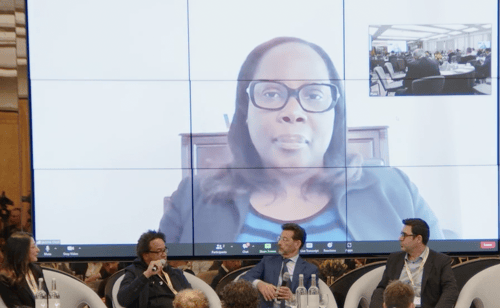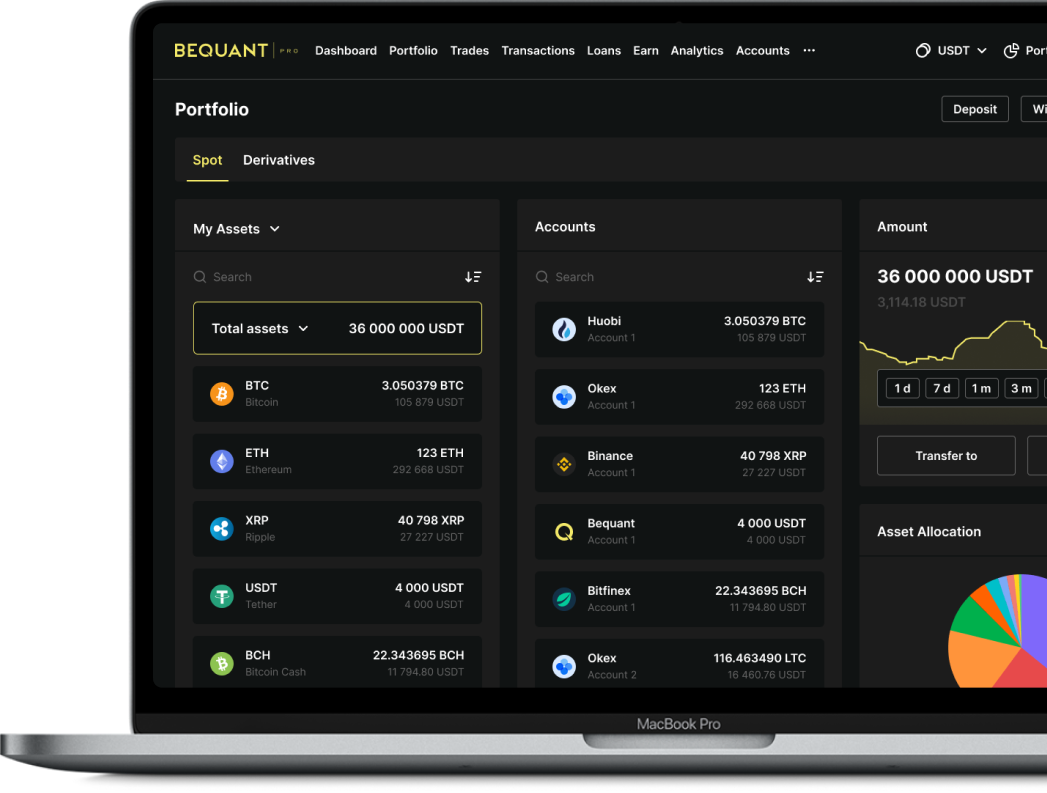Demystifying DeFi

BEQUANT panel debate: Demystifying DeFi
This April, BEQUANT held our inaugural Capital Introduction Crypto Forum. At the event, Martha Reyes, Head of Research at BEQUANT, hosted a panel discussion on the topic of “demystifying DeFi.” The panel of crypto and DeFi experts included Ijeoma Okoli, Co-Director of the Digital Economy Institute; Chris Cleverly, President of Tingo Inc; Matteo Dante Perrucio, President of International at Wave Financial Group; and Ken Olling, Founder and CEO of Meld. The following is a summary of some of the key points made during the debate.
Defining DeFi
For Perrucio, DeFi is the natural evolution of centralised finance. It is an approach to finance that better meets the needs of a younger generation and enables the democratisation of financial services to developing countries.
Cleverly agreed, adding that DeFi ultimately concerns decentralisation. With DeFi, individuals become their own personal bank and they run their own book. From a practical perspective, this empowerment means, for example, providing access to millions of unbanked farmers in developing nations, enabling them to trade outside of their natural area.
When looking at the benefits of DeFi, Perrucio was quick to point out the speed and efficiency of the model. With no gatekeepers, DeFi service providers and consumers alike can move at speeds that are unprecedented. As Perrucio commented: “It's non-custodial. It's decentralised, it's everywhere. You're not subject to some jurisdictional requirements or frameworks put upon you.”
The DeFi leaders of tomorrow
When asked about the DeFi investor community, Olling made the point that established financial services companies are very much a side-show. Some 20% of crypto investors are under the age of 18 and are already making serious money. For Olling, it’s this new breed of tech-savvy investor that will drive the market forward. “The speed at which they invest, the speed at which they trade, the tools they use,” said Olling, “it's all in a different world. We don't hear about it until they've already made their money.”
Cleverly noted that the majority of DeFi comes from a group of people that are very different to the traditional finance world. He gave the example of millions of farmers in African countries suddenly being given access to banking products and liquidity. For Cleverly, the heart of DeFi will be “the unbanked, the underbanked, and the brave.”

Perrucio agreed. Given the “complex collage of opportunity” in the DeFi space, it’s unlikely that today’s banks will be the market leaders of tomorrow.
Okoli, on the other hand, believes that DeFi and traditional finance will co-exist for a long time. “DeFi needs traditional finance, they need the off ramps, they need the on ramps, right now. What it looks like in fifty years is anyone's guess. But in the foreseeable future I think traditional finance will still be a significant part of the market.”
The risks of DeFi
Okoli also pointed out one of the major risks of DeFi: hacking, noting that cyber breaches are resulting in hundreds of millions of dollars being plundered from protocols. For the DeFi market to grow, these flaws must be fixed.
With high risk comes high reward, however, and as Olling pointed out where money has been stolen from protocols it has mostly also been refunded by the protocol indicating just how much money is being generated by DeFi products. Boosting the security of DeFi services therefore needs to be balanced with the need to ensure innovation, and value generation, can continue to flourish.
Perrucio noted that while there are risks involved in DeFi there are also risks in traditional finance. In the latter we rely on institutions to do their job, but this does not always happen, as the 2008 financial crash shows. In fact, the decentralised peer-to-peer nature of DeFi can be viewed as de-risking finance, as there is no need to rely on the opinions and judgements of centralised bodies.
The panel agreed that despite the benefits of DeFi there are clear flaws that need to be addressed at this nascent stage of the market. That said, given that the industry is still in its infancy, it’s progressing well.
The regulation of DeFi
The panellists had a range of views when it comes to the regulation of DeFi. Olling’s take is that stringent regulation is on its way, but that DeFi has the resources to restructure accordingly. He predicts that some jurisdictions will over-regulate, which will cause DeFi to move to locations in which it’s easier to do business.
Okoli believes that there is already a regulatory framework in place but that it’s not yet comprehensive. She agrees that the industry and regulators will need to come together to fashion the future for the sector. She also noted that ensuring products are truly decentralised will be an important consideration: “It seems like the more decentralized DeFi is, the less that the regulators will try to grab on to regulate it,” she said.
Perrucio takes the position that the industry cannot evolve without good regulation. He sees signs of positive approaches from regulators worldwide and that it’s now incumbent on the industry to be supportive.
